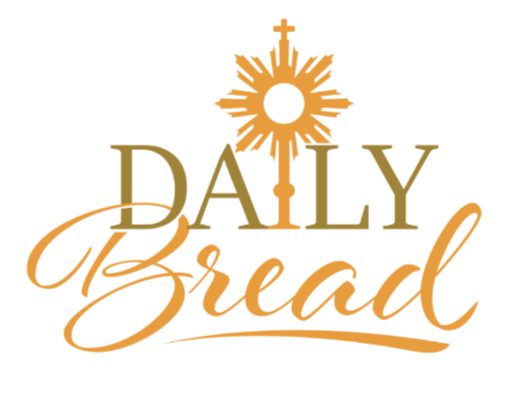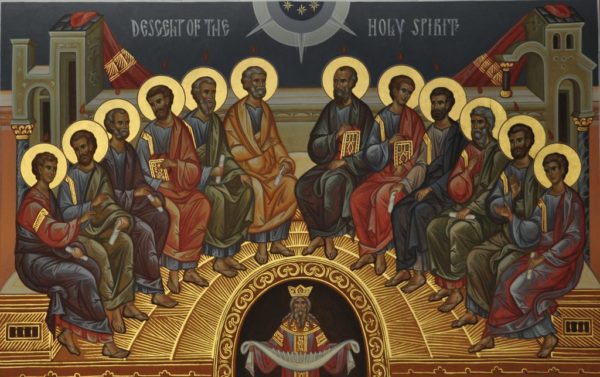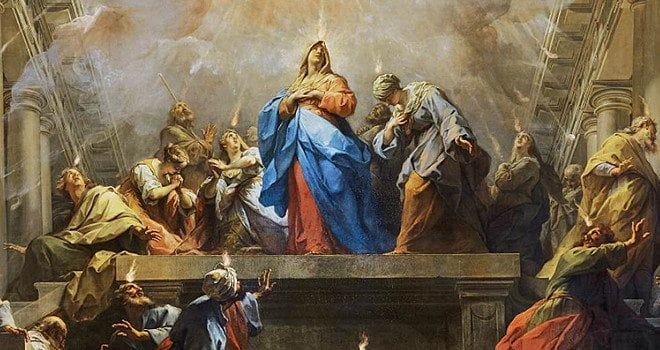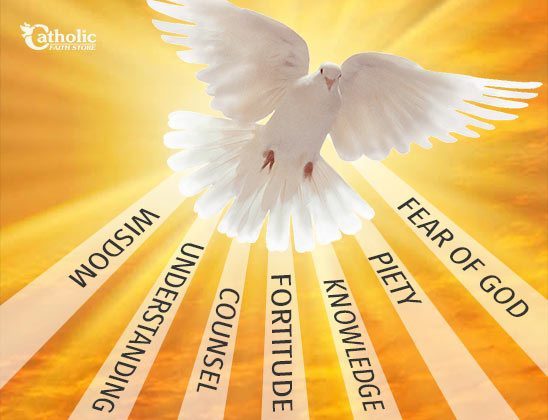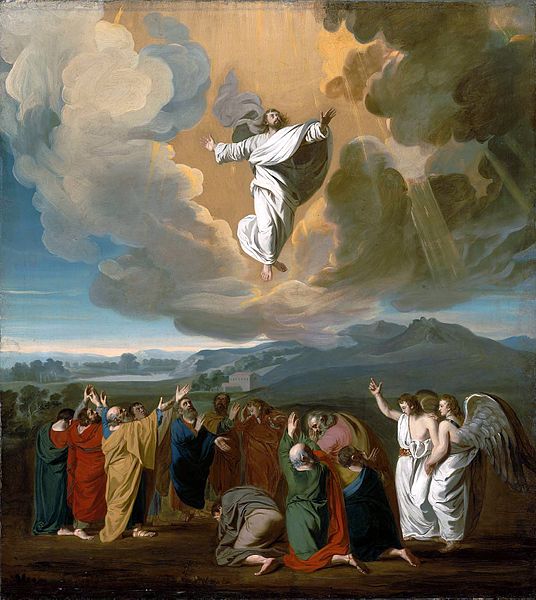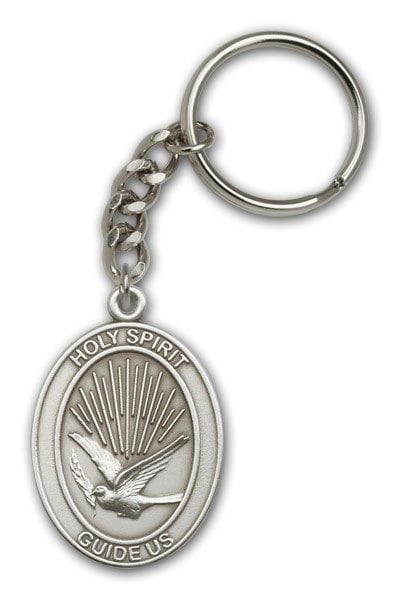If you've finished off all the Easter candy (even the ones you hid from your children!), it's time for another sweet treat: a birthday cake. On May 20 of this year, we celebrate the birthday of the Catholic Church. This holy day, Pentecost Sunday, is so vital to the mission and existence of the Church that is falls directly behind Easter and Christmas in importance. Why?
Surprising Origin of Pentecost
Pentecost was an important celebration for ancient Jews long before the coming of Christ. Translated as 'fiftieth day' in Greek, it originated as a harvest observance 50 days after Passover. In the newly formed Christian Church, 50 days after Easter, the Holy Spirit descended to strengthen workers for His Divine harvest. It is even mentioned in Acts of the Apostles as one of the first feast days of the Church:
"Paul had decided to sail past Ephesus in order not to lose time in the province of Asia, for he was hurrying to be in Jerusalem, if at all possible, for the day of Pentecost" (Acts 20:16).
What happened on Pentecost that made it so important in the early Church and why do we still celebrate it today?
Put yourself into this scene:
The Apostles, Mary, and other followers all gathered in one place to pray continuously after Jesus had ascended to heaven. They had been praying for nine days, which is the basis for the Catholic devotion called a novena (nine days of prayer for special intentions or needs). What were they praying for, as sheep who were suddenly without their Shepherd? Probably protection, guidance, courage, not to mention wisdom, understanding, fortitude. The Holy Spirit answered their prayers by joining them in dramatic fashion on the tenth day.
Power of the Spirit
"When the time for Pentecost was fulfilled, they were all in one place together. And suddenly there came from the sky a noise like a strong driving wind, and it filled the entire house in which they were. Then there appeared to them tongues as of fire, which parted and came to rest on each one of them. And they were all filled with the Holy Spirit and began to speak in different tongues, as the Spirit enabled them to proclaim" (Acts 2:1).
This scene was so astonishing that the crowds out in the street accused the Apostles of being drunk early in the day. The Holy Spirit can inspire that kind of radical change when we open up to Him and ask Him to work in our lives, as the Apostles and Mary spent nine days fervently doing.
The Holy Spirit Brought Gifts to the Party
The Holy Spirit didn't just make a dramatic entrance to the Church's birthday party, but He brought gifts. Seven gifts, to be exact:
These are seven dispositions which Jesus Christ embodied perfectly and which we can only hope to achieve with the help of the Holy Spirit, who helps us to grow in holiness.
Catholic Math
To the seven gifts, we must add the seven virtues, and together these prepare the soil of our hearts for the blooming of the 12 fruits of the Holy Spirit. Seven + seven does not equal 12 in arithmetic class, but in Catholic math, it works out divinely! What are the seven virtues?
Virtues are good habits. When we strive to grow in the gifts of the Holy Spirit and to improve our practice of the virtues, our lives become a living outpouring of the 12 fruits of the Spirit:
charity, joy, peace, patience, kindness, goodness, generosity, gentleness, faithfulness, modesty, self-control, and chastity.
Unity + Diversity
Why does the Holy Spirit distribute such a variety of gifts among the faithful? Because although we are all made in the image and likeness of God, we are all unique. We each have a specific mission and are enabled with the gifts we need to fulfill that mission in the growth of the Kingdom. Pope Francis stated beautifully that,
"The Holy Spirit creates diversity in unity, because in every time and place He gives and nurtures different charisms and graces. And he does so in a way that 'effects true union, according to God’s will, a union that is not uniformity, but unity in difference.'"
Further, the Pope explains that:
“This is how the word of God describes the working of the Spirit: first He rests on each and then brings all of them together in fellowship. To each He gives a gift, and then gathers them all into unity."
We are each blessed with the gifts we need for the mission, but when we join our gifts with those of others on the same journey, then our diversity and union collaborate powerfully and synergistically.
The Best Leaders Delegate
A young, contemplative parish priest once described Jesus as the epitome of a good leader. Effective leaders do not take all the work upon their own shoulders. Instead, they delegate tasks to the workers best equipped for each job. When Jesus took physical leave of His Apostles and followers, He did not do so without leaving instructions for and passing the baton to His chosen earthly leaders. He had already bestowed on them the Authority to continue His Church and the power to forgive sins, to heal the sick, to cast out demons. The coming of the Holy Spirit sealed the Apostles, Mary, and His other followers with the strength they would need to carry out the singular task of the Church: to evangelize to the ends of the world during a dangerous time.
Pentecost Lives On
Pentecost was an event in history, but what happened on Pentecost continues daily.
When we ask the Holy Spirit for His gifts to do God's will, Pentecost lives on.
When we practice the seven virtues in concert with our God-given gifts, Pentecost lives on.
When others see Christ anchoring our daily lives through the 12 fruits of the Holy Spirit, Pentecost lives on.
When young men and women receive the Sacrament of Confirmation, Pentecost lives on.
